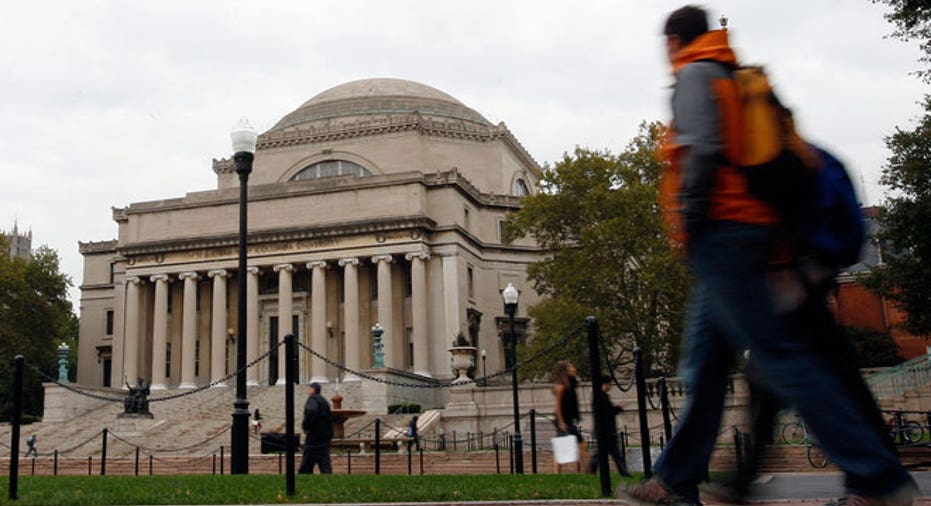Taking a Gap Year: What Students Should Consider

While most high school seniors are working hard to complete college applications, not every student is planning to head to campus next fall.
Taking a gap year after high school, common in many European countries, and the trend has become more popular with students in the U.S. as the cost of college continues to rise along with outstanding student loan debt.
“Students can use the year to refresh skills, gain experience, and learn of career opportunities that may ultimately direct their academic path,” says Rita Toliver-Roberts, vice president of Academic Advancement at Peirce College. “Students can also utilize this time to search for additional financial support, such as scholarships or grants.”
Rather than jumping into college after high school, some experts argue that taking time off allows students to explore interests, gain valuable experience and in turn, perform stronger academically when they enter college.
Research conducted by Robert Clagett, former dean of admissions at Middlebury College, shows students who take a gap year tend to outperform those who don’t. Undergraduates at Middlebury College and the University of North Carolina who had taken a gap year before enrolling in college on average had a GPA 0.1 to 0.4 higher than predicted based on high school academic credentials.
“When students take this kind of time, they don’t forget how to learn--they’re much better students,” says Holly Bull, president of the Center for Interim Programs, LLC. “I’ve had parents tell me their child would probably have dropped out after first semester or year because they were so turned off by their classes in the academic experience, but a gap year helped them get excited and gave them a focus.”
Creating a Plan with Purpose
Students should ensure they are taking a gap year for the right reasons, such as feeling underprepared for the academic rigors of college, needing more time to find the right-fit school or wanting to seek out experiential opportunities and work/career experience, according to Toliver-Roberts.
“One of the bad reasons to take a gap year can be to just take a break--in our competitive society, taking a break, for the sake of simply ‘resting’ should not be an option,” she says.
Bull also warns students against taking time off only for the sake of reapplying to schools in the hopes of being admitted to a “better” college.
“It’s not a guarantee and it really defeats some of the core value of the gap year which is… really allowing somebody to say, who am I? What am I interested in? Let me go and follow up on these things and see where that goes and lead from that,” she says.
It’s vital for students to create a plan and identify specific goals for their gap year to avoid wasting time and money, says Robin Pendoley, founder and CEO of Thinking Beyond Borders.
“A gap year should be well structured to fill that specific need of finding that sense of direction and purpose for college,” he says. “It’s an important investment for them to be making of time, money and energy so that when they go on to college, they’re going to be well-prepared to do that and to dive in passionately and effectively for those four years.”
Finding the Right Gap Year Options
Depending on their goals and financial abilities, students have a plethora of options available to fill their gap year, from organized gap year programs, volunteer and service opportunities, internships, part-time jobs and specialized certifications.
“You have a whole pile of programs where there’s more structured support and they’re hooked in with peers and they’re doing service work, adventure travel sightseeing, language immersion,” says Bull.
Exploring different fields of interest can help students decide what major to pursue in college and gain valuable skills at the same time to later quantify to a future employer, says Liz Kuenstner, a former gap year student through Thinking Beyond Borders and a graduate of Columbia University.
“It can give you concrete experience towards what you think that you’re looking for but it also might reveal that what you think you’re really interested in, you don’t actually want to do for the next four years of your life,” she says. “If you’re doing something pre-professional, it’s really valuable just to get inside the office and see what day to day life is like and how people adjust.”
Gaining gap year work experience not only helps students become more acquainted with the ins and outs of a professional atmosphere, Pendoley explains it can also lead to additional resume-building opportunities.
“After having four different internships over two semesters, going to college and applying for internships, fellowships, jobs during their college experience, [students are] being offered almost everything they apply for specifically because they have four different experiences and employers really value that,” he says.
Because students can customize gap year plans to fit their financial, social and professional needs, finding a sense of direction for college rather than floundering from major to major is an invaluable investment, says Kuenstner.
“Having very small group cohesion in travelling with 15 other students for a year provided me something that Columbia certainly never did—it was a more intimate, personalized experience,” she says. “I wouldn’t say that I came out at the end knowing exactly what I wanted to do, but it gave me the tools to think about how I wanted to do college.”



















